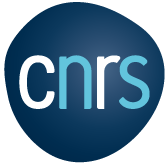After completing his Diplom and PhD in physics at Johann Wolfgang Goethe-Universität Frankfurt (Germany) in 1986 and 1987, respectively, he spent two years as a postdoc at AT&T Bell Laboratories in Holmdel (U.S.A.). From 1990-1995 he was professor (C3) at Universität Dortmund (Germany), since 1995 he is professor (C4, later W3) at Institute of Applied Physics of Karlsruhe Institute of Technology (KIT). Since 2001 he has a joint appointment as department head at Institute of Nanotechnology (INT) of KIT, since 2016 he is one of the three directors at INT. From 2001-2014 he was the coordinator of the DFG-Center for Functional Nanostructures (CFN) at KIT. Since 2018 he is spokesperson of the Cluster of Excellence 3D Matter Made to Order. His research interests comprise ultrafast optics, (extreme) nonlinear optics, optical laser lithography, photonic crystals, optical, mechanical, electronic, and thermodynamic metamaterials, as well as transformation physics. This research has led to various awards and honors, among which are the Alfried Krupp von Bohlen und Halbach Research Award 1993, the Baden-Württemberg Teaching Award 1998, the DFG Gottfried Wilhelm Leibniz Award 2000, the European Union René Descartes Prize 2005, the Baden-Württemberg Research Award 2005, the Carl Zeiss Research Award 2006, the Hector Research Award 2008, the SPIE Prism Award 2014 for the start-up company Nanoscribe GmbH, the Stifterverband Science Award – Erwin-Schrödinger Prize 2016, and the Technology Transfer Prize of the German Physical Society (DPG) 2018. In 2014, 2015, 2016, 2017, 2018, 2020, and 2021 Clarivate Analytics listed him as “Highly Cited Researcher” (top 1%). He is Member of Leopoldina, the German Academy of Sciences (since 2006), Member of acatech, the National Academy of Science and Engineering (since 2019), Member of the Hector Fellow Academy (since 2013, presently also President), Fellow of the Max Planck School of Photonics (since 2019), Fellow of the Optical Society of America (since 2008), and Honorary Professor at Huazhong University of Science & Technology, Wuhan, China (since 2014).









